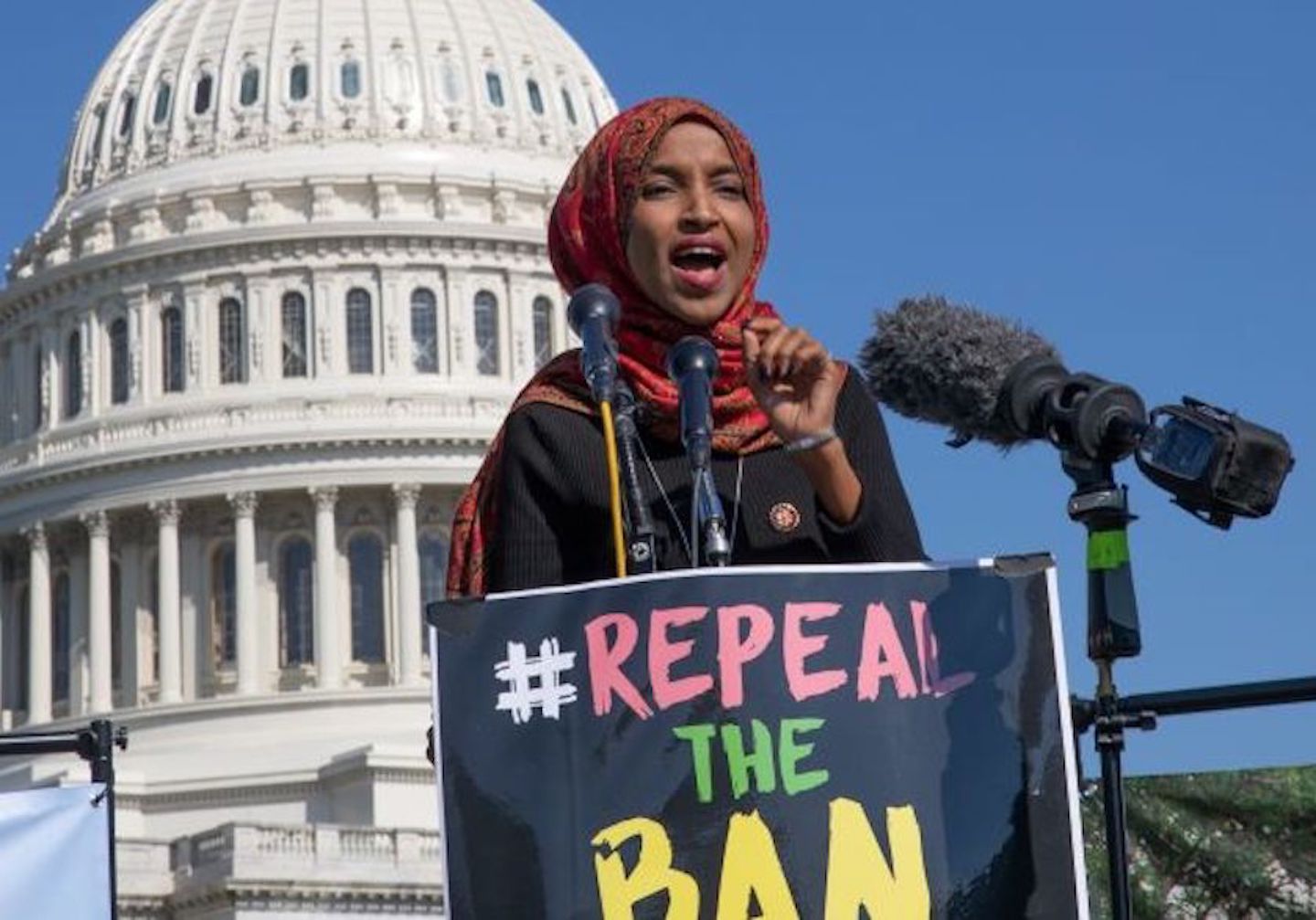The House Will Finally Do Something About Trump’s Travel Ban

Credit to Author: Leila Ettachfini| Date: Mon, 27 Jan 2020 21:47:13 +0000
On Monday, House Speaker Nancy Pelosi announced that the House will soon vote on a bill that would end the Trump administration’s current travel ban on five majority Muslim countries, as well as its ban on asylum seekers.
Her announcement comes less than a week after Donald Trump shared his plans to add seven additional countries to the travel ban: Belarus, Myanmar, Nigeria, Sudan, Tanzania, Eritrea, and Kyrgyzstan. The latter five have high Muslim populations.
Campaigning in 2015, Donald Trump told a crowd he would implement “a complete and total shutdown of Muslims entering the United States.” At the time, the statement seemed as unconstitutional as it was Islamophobic. Then, in his first month in office, Trump put the first version of his administration’s Muslim travel ban into effect, prompting nationwide protests and legal challenges from several states, individuals, and groups. After the Supreme Court upheld the ban in 2018, the Trump administration has been successfully working toward the original goal.
Introduced in April 2019 by Senator Chris Coons (D-Delaware) and Representative Judy Chu (D-California), the National Origin-Based Antidiscrimination for Nonimmigrants Act, aka the NO BAN Act, aims to limit the president’s authority to restrict or suspend non-citizens wishing to travel to the U.S., in addition to “prohibit[ing] religious discrimination in various immigration-related decisions.” The bill also requires the executive branch to meet a higher standard of evidence to prove that a group poses a safety threat before they are barred from entering the country, one of which is relying on “credible facts.”
The Trump administration has not specified how long the Muslim travel ban will be in place, and is currently fighting the limitation placed on its asylum ban that will expire after the U.S. Disctrict Court in San Diego rules on the case. If the NO BAN Act is passed, the executive branch will be required to specify the duration of any bans pertaining to large groups of people.
Chu, who is Chinese American, said she felt particularly motivated to write the NO BAN Act. “The Chinese-Exclusion Act, a law on the books for decades, made second class citizens out of people like my grandfather. Today, thanks to this ban, many others are feeling like second-class citizens as well,” she told VICE. “So from personal experience to my oath to support the values of our country, I was compelled to stop this ban.”
On Monday Pelosi said that the House vote on the NO BAN Act would take place in the “coming weeks.” Following her statement, House Judiciary Chairman Jerrold Nadler announced that his committee will markup the bill in two weeks.
“President Trump and his administration’s continued disdain for our nation’s national security and our founding ideals of liberty and justice dishonor our proud immigrant heritage and the diversity that strengthens and enriches our communities,” Pelosi said in a statement Monday.
The bill has gained 214 cosponsors in the nine months since it was first introduced, including Democratic representatives Alexandria Ocasio-Cortez, Ilhan Omar, Rashida Tlaib, Ayanna Pressley, Pramila Jayapal, and Barbara Lee. The NO BAN Act also has the official support of over 400 human rights groups, including the ACLU, Amnesty International, CAIR, and the NAACP. No Republican congress members have cosponsored the bill, nor would Trump be expected to sign it.
“The ban has been a failure whose only impact has been to create pain in families unable to see each other,” Chu said. “That [Trump] wants to expand the ban now shows only how central cruelty is to the President’s immigration agenda. He must be stopped. The NO BAN Act is how.”
This article originally appeared on VICE US.